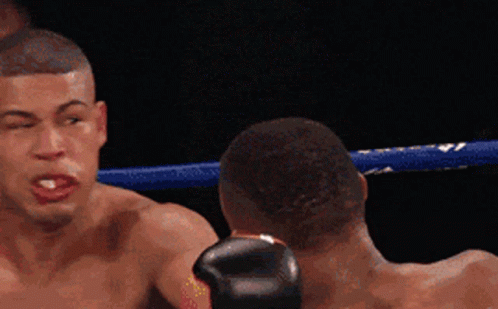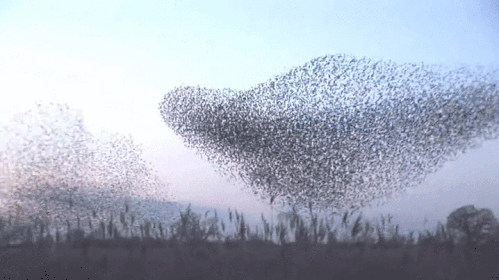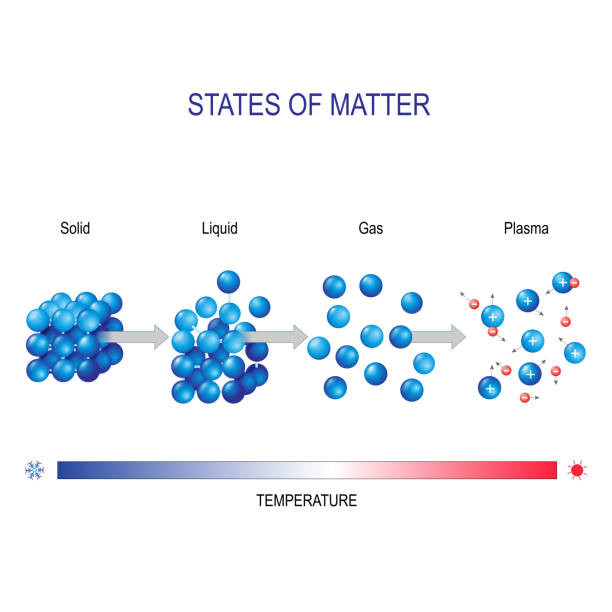***
The reason I keep pointing to spiritual activity - that we experience as "thinking" in our current state (but the ancients experienced as "divine revelations") - as the very process by which reality is structured and evolves, is that until we understand this principle with intimacy, everything we reason to or intuit will seem "ad hoc" when it doesn't fit our preferences. We simply can't pursue any objective knowledge of reality in this way.
For instance, let's consider written text. The perceptions, in this case, are the letters that make up the words, the words that make up the sentences, the sentences that make up the paragraphs, and so forth. What actually takes place when these perceptions present themselves to our eyes, in the case of reading? We perceive the outer structure of those words, sentences, paragraphs, etc. - which we call their "syntax" - and that syntax stimulates our thought to go searching for the inner conceptual meaning which makes sense of that syntactical structure - which we call the "semantics". No words have semantic meaning in isolation, but rather that meaning lives in the empty spaces between the letters, words, and the sentences (we refer to this whole implicit structure as the meaningful "context").
Consider the following sentence in three formulations to experience carefully how your own cognitive activity responds when perceiving them. We should try to move slowly through the progression and pay close attention to how our cognitive discernment of meaning changes between them. Most of the value here will come from the intimate experience of what is unfolding - although it is helpful to put this experience into concepts later, we should first focus on the intuitive experience without any prejudices or assumptions.
(1) "hereliesthewhitemousewhowaseatenbythebrowncat".
(2) "hereli esthewhitemo usewhowaseate nbytheb rowncat".
(3) "herelies thewhitemouse, whowas eatenbythe browncat".
What else have I done in formulations #2 and #3 above apart from creating and enlarging (or modifying with punctuation) empty spaces within the syntax of the letters and words for your conceptual activity to penetrate in a different, more inviting way? Nothing else has been done besides that. Note how the empty spaces do not automatically bring meaning to the structure, but only reveal it after our cognitive activity has been invited in to assume its 'shape' and we accept the invitation with meaningful engagement. It is through our cognitive activity that the implicit meaningful context becomes manifest in the perceptions. The same principle discerned above will also apply to all other perceptual phenomena in our experience. Consider music when we are listening, singing, or dancing to it and experiencing its underlying rhythm. This rhythm is experienced, usually subconsciously, by the silent spaces ("intervals") between the beats, notes, and chords.
We have to be clear here that the above doesn't mean perceptual experience is irrelevant. If our cognitive activity working from the liminal spaces didn't have the perceptual structures of letters and phrases to meet as resistance, we would only live in some nebulous meaning without any definite resolution. In fact, cognitive activity without any perceptual resistance is unconsciousness. The lucid meaning in our experience comes from the continual interplay of spiritual activity and perceptual structures. We cannot reduce that meaning to the perceptual structures (as materialists do), nor can we reduce that meaning to the 'pure spiritual activity' (as many mystics/spiritualists do). The perceptual frames of our experience all need to find their proper place for genuine insight to arise, but it's only that they will remain a confusing jumble of perceptual details until we become intimately familiar with the cognitive activity that works in from between the details. Once we set out on that path, we should return to the perceptual details that Nature or Culture presents to us and organize them into harmonious constellations of meaning.
Another example we could imaginatively work with is when we are playing an instrument. Let's imagine a piano. What makes the difference between a succession of notes coming out as flat and mechanical progression and them sounding with organic freshness, depth, and inspiration? Once our fingers are set into motion - the whole chain of physiological processes through our cells, tissues, nerves, muscle fibers, etc. - it becomes a completely deterministic process. Once that process is set in motion, it can't be retracted by our will. We can imbue this image with moral significance if we imagine throwing a punch to someone else's face - in the liminal space before we throw the punch, we can shape our feelings and intention, but once we set the will in motion, there is no stopping the punch in mid-stream and retracting.

That frame is an image of Bernardo's "blind will" - once the process is set in motion, there is no turning back from the consequences. It is "blind" because we have not yet permeated that aspect of our organism with cognition. Theoretically, if our "I"-ness was awake in our deep physiology, then it could micromanage the process and stop the punch a millimeter from the other person's face, but in our ordinary state, we are deeply asleep to such processes and therefore it quickly gets beyond our control. It is very important to be clear on where/when we actually have creative control in our stream of experience. When we actually have control is only that duration between the physiological processes and the corresponding punches or notes that are struck on the piano, where we can imbue them with noble feelings and intents. The latter will make the difference between a bad rendition of a melody, a good rendition, or a great rendition (while a perfect rendition is still out of reach). It will make the difference between reacting to a violent punch with an even more violent punch or, instead, turning the other cheek.
We can discern that the same principle applies to the 'frames' of our individual and collective streams - the days, months, seasons, and years of our individual existence; the epochs, ages, and aeons of human history. Our individual memories are such frames that are united by an overarching spiritual activity, which we broadly and dimly sense as the quality of our "I"-ness that is present within all memories. We can call those states of being "our memories" because that overarching quality spans them. Yet it is easy to see that the quality of our personal frames, let alone the frames of human history, are not only determined by the spiritual activity of our "I" working within the liminal background. There is also our family and friends, our nation, our historical context, our temperament, our habits, our talents, our biology and physiology. Many of these things we were born with, developed very early in childhood, and/or were influenced heavily by a relatively independent social context. All of these labels emerge from our thinking activity that perceives a nested context through which higher-order spiritual activity structures the frames of its existence. It is only human hubris that rationalizes to itself that these nested contexts lack their own overarching "I"-ness.
"When two or three are gathered in my name, there I am in your midst."
That is, the Divine Logos appears in the liminal space where two or three 'personality frames' gather together with lofty thoughts, compassionate feelings, and noble intentions. It is within that space that ideal potential is born into the manifest world that could not be realized by any one personality thinking and acting alone. We often refer to this newborn quality as "collective intelligence". It could be spatially analogized to what our thinking perceives in a flock of birds moving in unison across the sky or a swarm of bees. Meaningful qualities of intent, intelligence, and dynamism emerge where we would otherwise perceive something more instinctive, mechanical, and linear.

The above begs the question - is the 'collective intelligence' of animal and human groups something that can be experientially explored by human individuals as well? All esoteric paths across cultures and time periods have answered "yes" and present us with something akin to initiation through the ancient elements - earth, water, air, fire (and perhaps also the ethers - light, sound, life). For our purposes in this context, that practically means a progressive purification and spiritualization of the soul-structure, the life of thoughts, emotions, desires, and impulses. Our normal intellectual and sensory life is analogous to densely packed atoms with very little leeway for the World-creative Spirit to flow and shine through.

As we progress with our inner work - for ex. through the six 'subsidiary' exercises given by Steiner in his lectures - we are 'warming' and 'loosening' this dense soul-structure so the water, breath, and warmth of the Spirit is met with more leeway to flow through. That is a process of soul purification (catharsis), spiritual illumination, and spiritual union. We can sense our conceptual thinking and sensory perception becoming more fluid and imaginative, more inspired by lucidly outlined ideals, more intuitive, loving, and motivated to attain the harmonious development of all beings. The liminal spaces in which the Spirit can be active through our soul-life on the physical-perceptual plane have expanded. The above is only a crude metaphor for something that can be inwardly engaged and experienced at levels of profound depth. The ways in which we can intimately experience this depth of spiritual activity are completely unsuspected to our modern habits of thinking. So we need to always approach these things with epistemic humility, appreciation of our living experience, and childlike openness to the unfamiliar and unexpected.